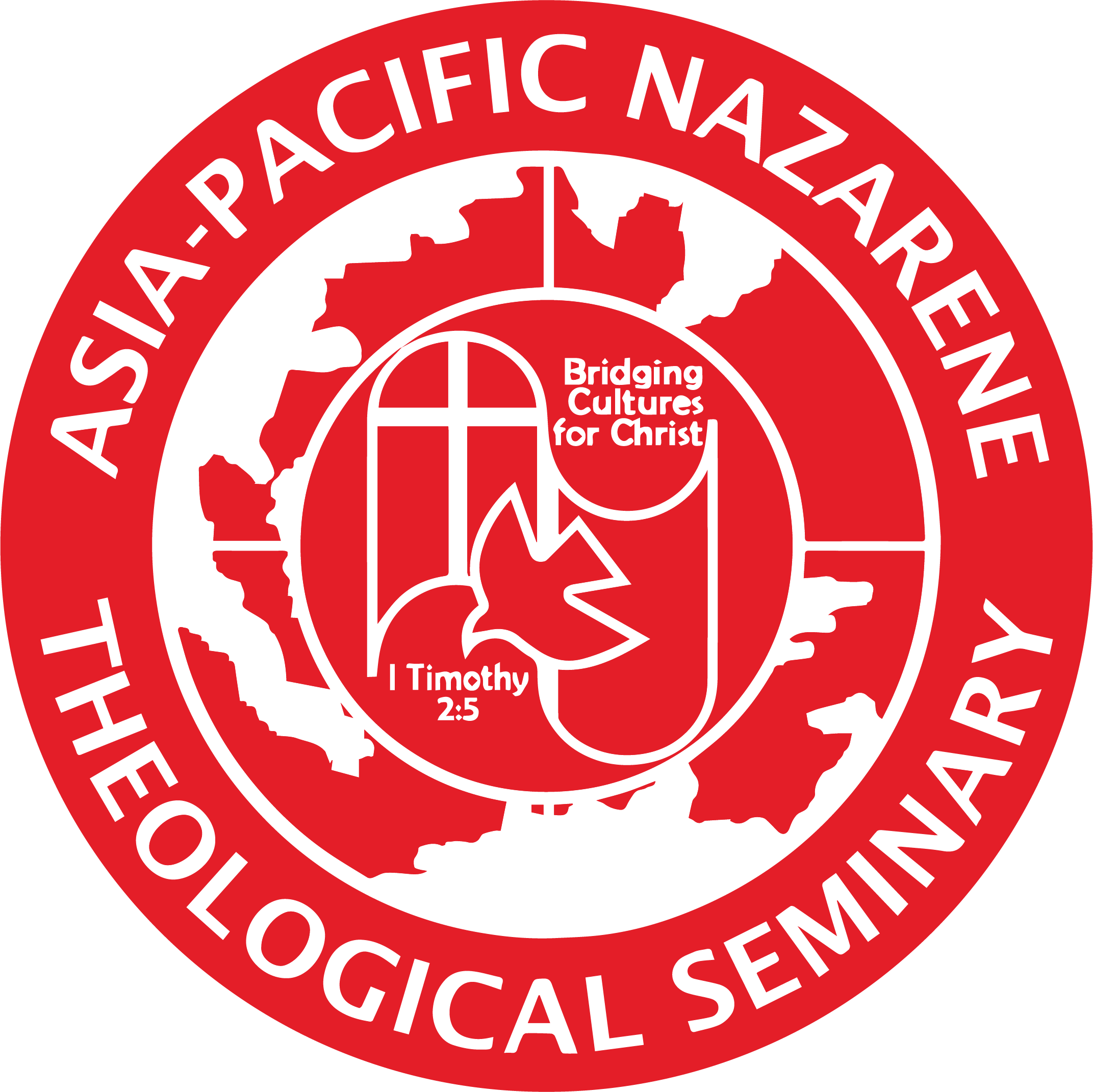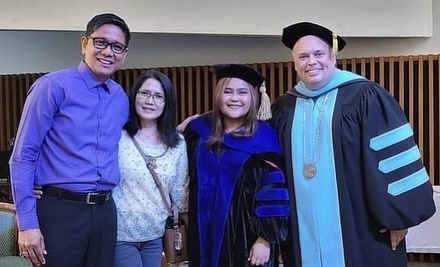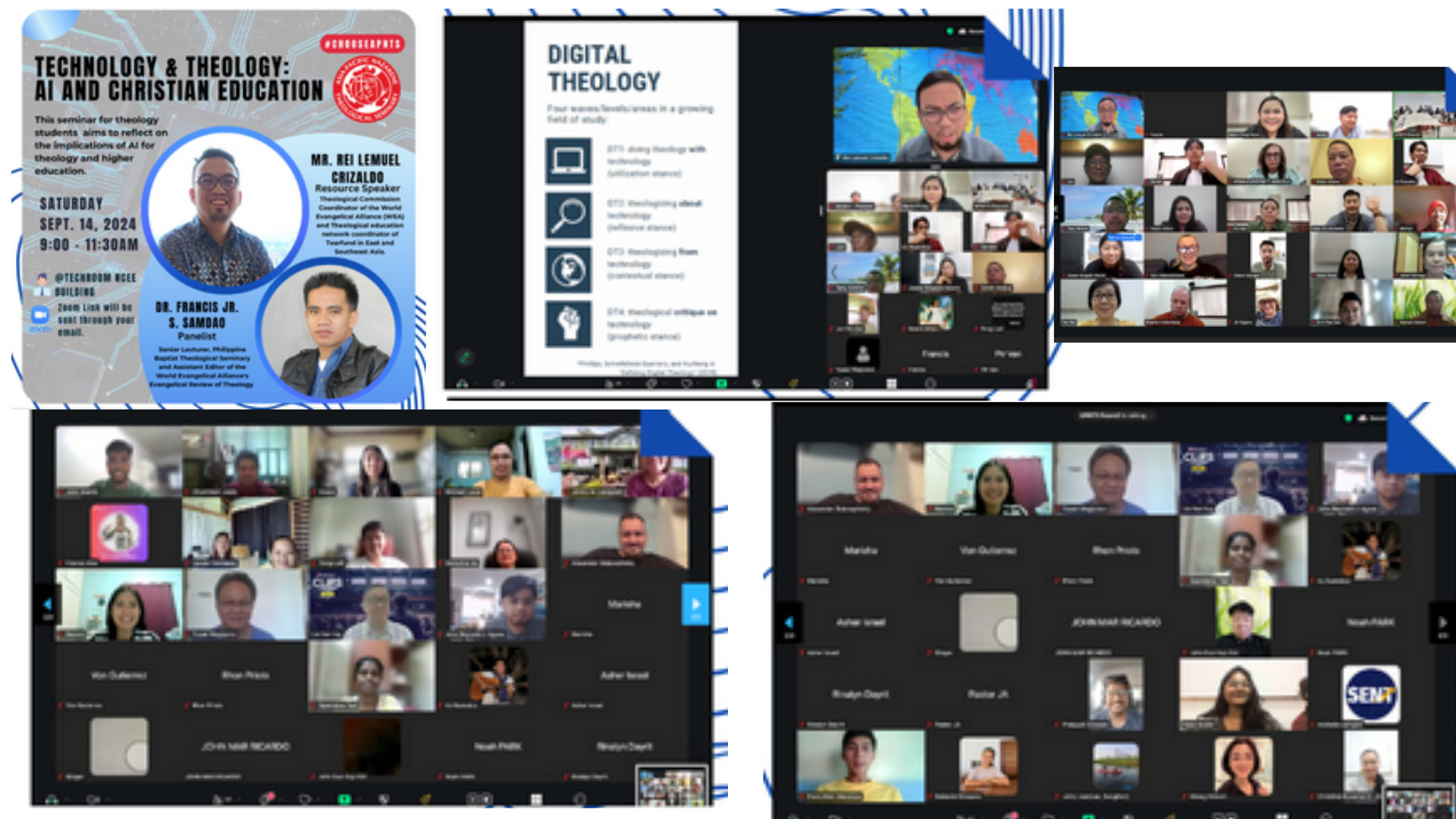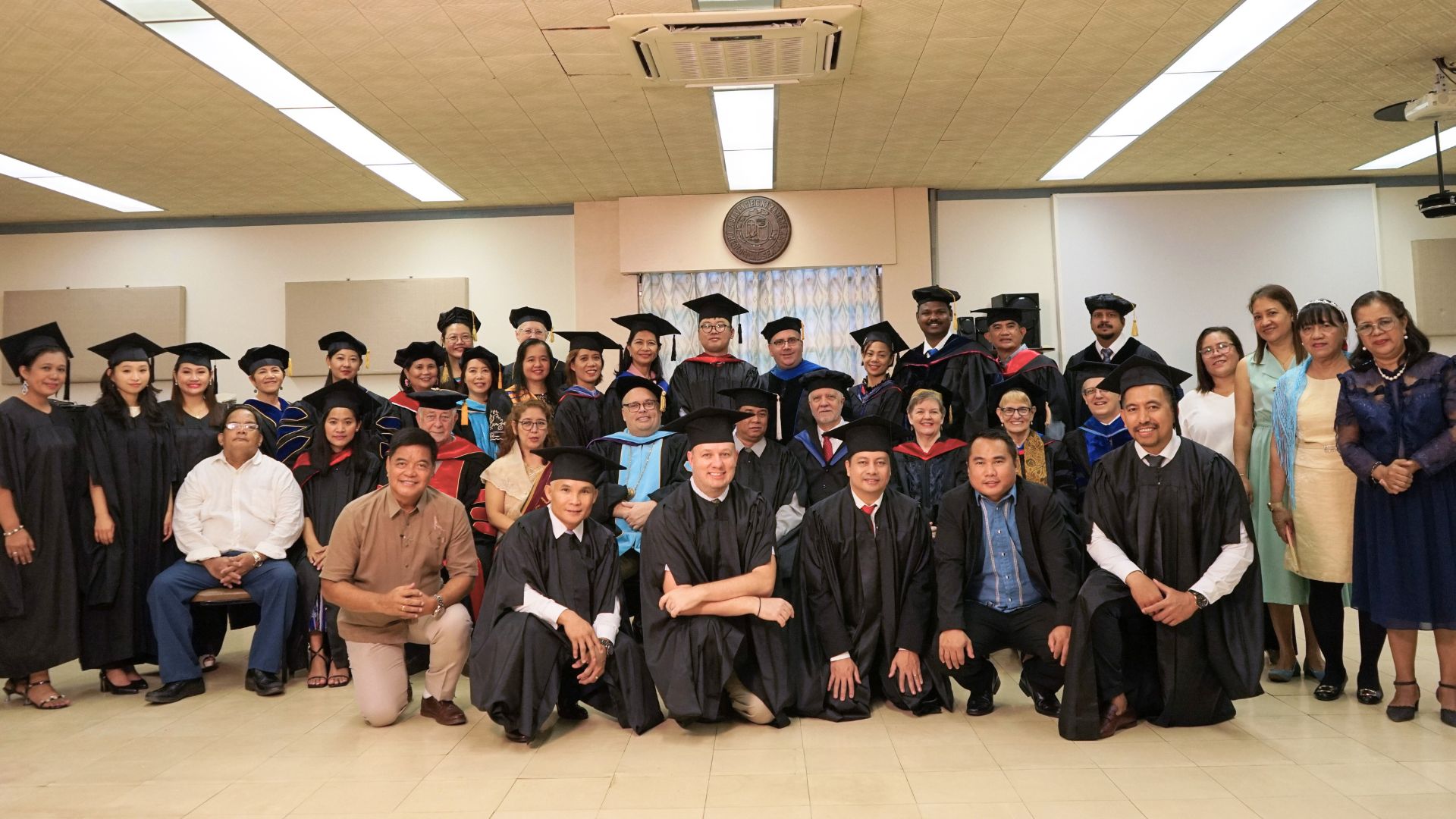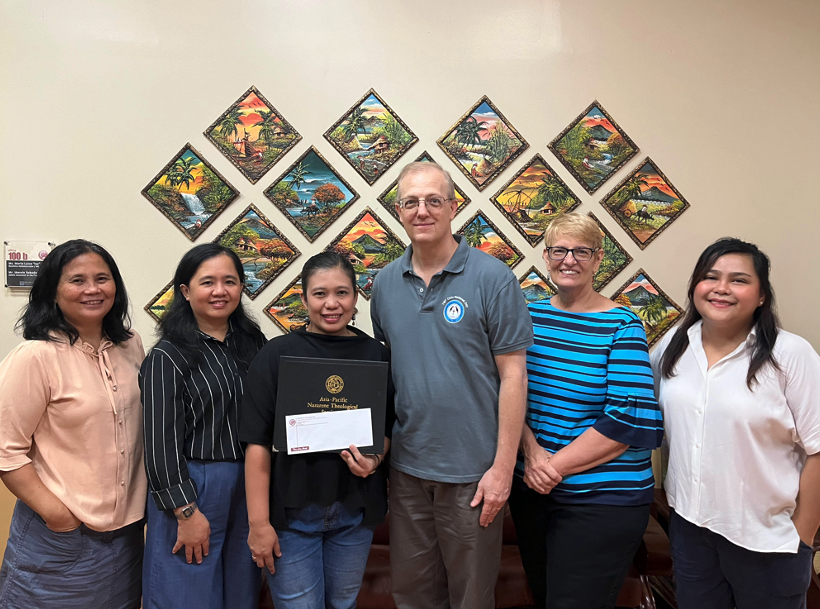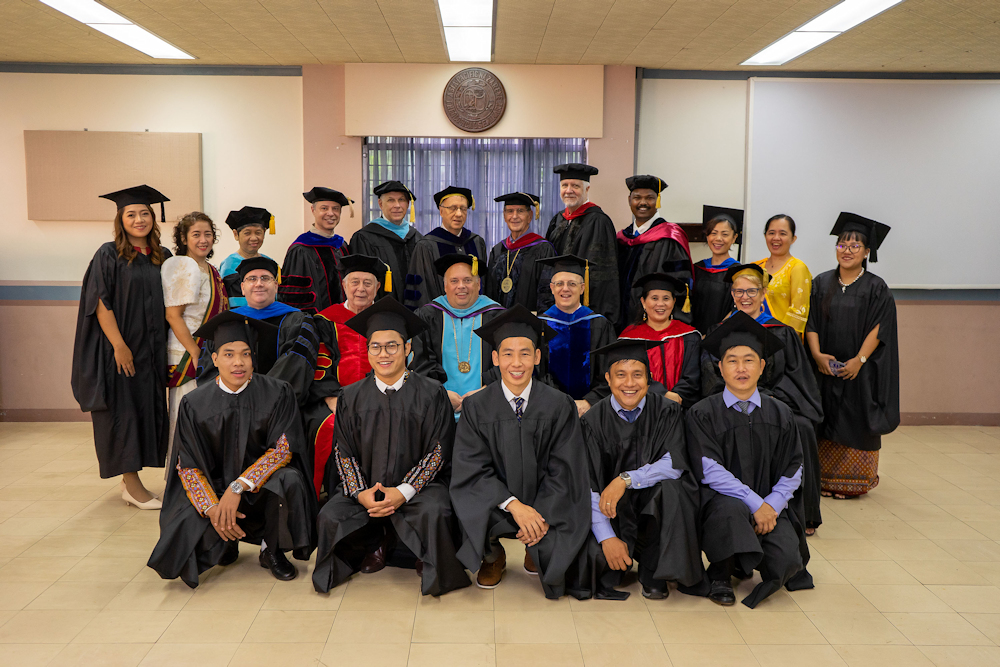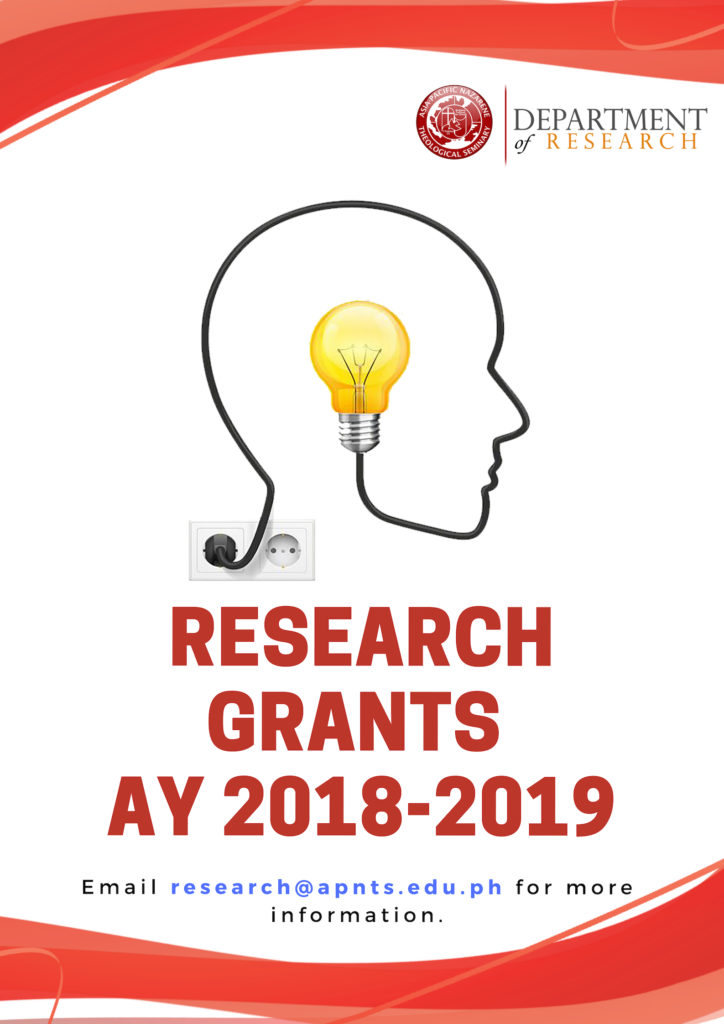
The APNTS Research Department invites students and faculty to apply for Research Grants AY 2018-2019. Please see the application guide and institutional research priorities below.
Application Guide:
- The proposal must have a letter of intent as its cover and must contain the following:
-
- Brief introduction of the research
- Summary of the study’s relevance to APNTS research agenda and priorities
- The proposal must correspond with two or more of the listed research priorities.
- The proposal must be significant to the problems and needs of the institution, or of the academia, or of the Philippines and Asia-Pacific region.
- The proposal must be no more than five pages and must contain the following elements:
-
- Clear objectives
- Justified and research sound methodology
- Enough survey of related literature
- Well-defined expected outputs, impacts, or derivations
- Comprehensive work plan and timetable until the expected date of completion
- Detailed complete and justifiable financial plan and budgetary outlay
- The researcher(s) must be able to show the following:
-
- Academic qualification (relevant degree in hand or in process)
- Research and writing experience
- Capability of research team members (if applicable)
- A letter of reference from the thesis/dissertation adviser (if applicable).
APNTS Research Priorities:
APNTS will prioritize research along the lines enumerated in the Research Agenda. In particular, the following criteria will be given priority:
- Social Relevance. APNTS is a higher education institution that is also committed to generate knowledge that is relevant to the current issues in the Philippines. Research that further the understanding and dialogue about the Filipino culture, society, and even government from the perspective of biblical-theological studies are welcome.
- Academe. Research that can contribute to the debates involving biblical-theological issues in the academic arena, and/or provide important nuances or perspectives that can make discussions more meaningful, are welcome. Advances in theological studies, new research methodologies, and innovative approaches are some of the seminary’s goals as it seeks to be heard both locally and internationally.
- Missions and Ministry. As an ecclesial institution, the seminary is committed to produce resources that are helpful in the missions and ministries of churches, especially those in the Philippines and the rest of the Asia-Pacific region.
- Curriculum and Instruction. These are surveys, polls, and other research that can guide the program directors in creating, assessing, and revising the curricula. As an education institution, research for faculty members to effectively teach, inside and outside the classroom, are also extremely helpful.
- Communication. Research that produce media materials that are helpful both to the academe and the church to effectively communicate the gospel in the twenty-first century are encouraged by the institution.
- Administration. Feasibility studies and surveys that help in making and implementing policies, planning developments, and fostering effective institutional leadership are always welcome.
- Multidisciplinary Approach. For instance, projects initiated by faculty members of the biblical studies and doctrinal theology would be appreciated. Moreover, research projects in collaboration with entities and organizations outside of APNTS—religious or non-religious—are greatly appreciated.
- Collaboration. Personal research and projects conducted by faculty members and other research are always welcome, but collaborative endeavors are preferred. Research projects that are class-based, as they are research shared by faculty and students, will produce interesting results.
